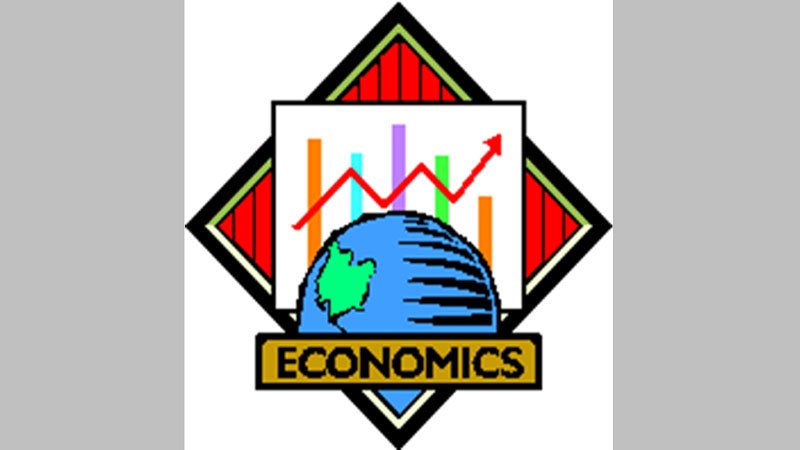An introductory course of economics provides, reminds us of a valuable lesson: all of us can play a significant role towards a more sustainable, fair, and just world. Ultimately, our decisions and choices shape the world around us.
।। Nabeel Iqbal।।
The following insights were mostly obtained through virtual on-line class discussions held during the COVID-19 pandemic:
Insight 1
Every society faces the problem of a limited number of opportunities, such as high paying jobs, scholarships, university seats, etc. Economic theory predicts that if a society allocates these limited opportunities on the basis of skills, knowledge, and integrity, then the members of the society will compete to improve their skills, knowledge, and integrity. In such a society, we will see, on average, individuals spending more time building their skills and characters. However, if a society allocates its limited opportunities on the basis of political connections and nepotism, then in this society we are likely to find individuals spending more time and energy buttering up politicians and corporate leaders; there would not be any incentive for individuals to develop their knowledge and character.
Insight 2
In modern economies, most of the resources are allocated through price changes in a market. For example, if the members of a society demand more rice, then the price of rice increases in the market and farmers allocate more of their land to rice production assuming other factors remain constant. In this case, in the long-run we are likely to see more rice fields spanning the landscape of the country side. This is a very powerful insight since it reminds us that the world we see around us is a reflection of our preferences and choices. If we, the buyers, start preferring more environmentally friendly products, then more resources will be allocated to such products and we will see a more environmentally friendly world taking shape around us. As Captain Planet used to say, back in the 90s, “The power is yours!”
Insight 3
In economics we argue corporations competing with each other and trying to maximize profit can benefit the society. Yes, you read that right. To survive in a competitive market, a corporation has to lower cost which implies saving valuable resources of this planet. For example, if a paper company wants to lower cost, then it has to become more efficient by using less trees to make the papers and thus more trees are saved! This illustrates the most famous observation of economics made by Adam Smith: Individuals pursuing their own self-interests (e.g., lower cost) can promote greater good (e.g., saving tress). However, there is definitely a dark side of mindless profit seeking and/or consumerism, and this is where economics advocates government intervention and regulation. Hence, a balance between economic freedom and government regulationneeds to be maintained.
Insight 4
This brings us to probably the most applicable insight discussed in this article: optimization. Optimization implies finding the right and balanced amount which is, in most cases, is neither too little nor too much. This concept is applicable to almost everything. There is an optimum amount offood, sleep, work, study, socialization, etc. As also argued by Aristotle in his philosophy of the golden mean, perhaps the key to a good life is finding this optimal balance in all spheres of our lives.
Insight 5
The cost-benefit analysis, taught in most introductory economics courses, informs us that benefits do not come without costs, and only considering the benefits while ignoring the costs can have devastating effects. For example, economic growth has its benefits, such as higher standards of living. However, if we suffer from tunnel-vision and do not consider the costs of economic growth, such as environmental pollution, then there can be severe consequences, such as global warming. Hence, economic theory teaches us to keep a broader perspective and consider both the benefits and costs of our decisions. Otherwise, our decisions and choices can have adverse unintended consequences on the environment and society.
Insight 6
Last but not the least, economics reminds us that the resources on this planet – water, trees, animals, fossil fuels – are limited and scarce. Hence, it is humanity’s collective responsibility to sustainably manage, use and take care of these resources. If we do not sustainably use and manage these finite resources, then they will be depleted soon and the future generations will suffer the consequences. For example, WWF predicts that by 2025 most of the world’s population will face the problem of water scarcity. By choosing sustainable products in supermarket shelves, we can address the coming crisis (a not-so-fun fact: one kilogram of beef needs around 15,400 liters of water).
These insights, that an introductory course of economics provides, remind us of a valuable lesson: all of us can play a significant role towards a more sustainable, fair, and just world. Ultimately, our decisions and choices shape the world around us. Thus, by making more informed choices and decisions and considering their effects on the environment and society, we can make the world a better place.
The writer is Lecturer, School of Business and Economics, North South University

